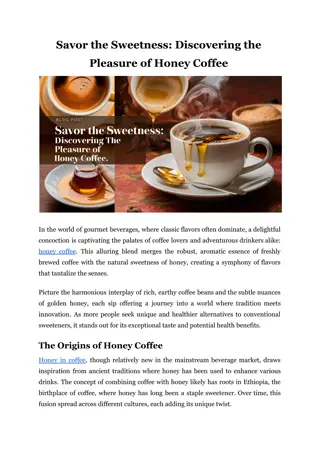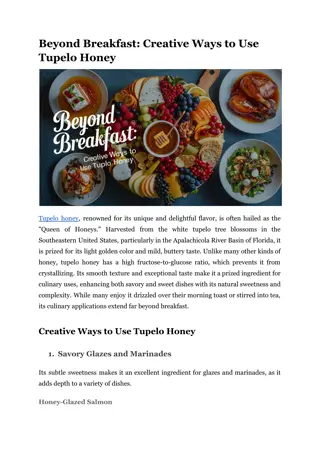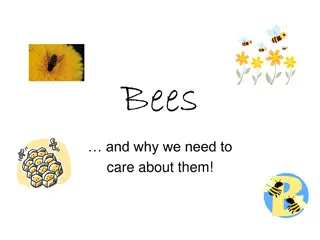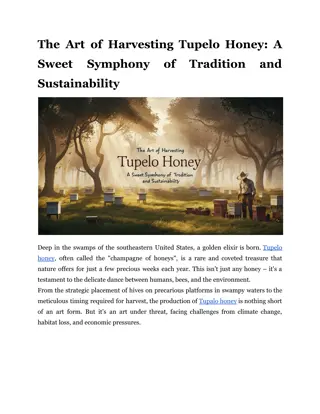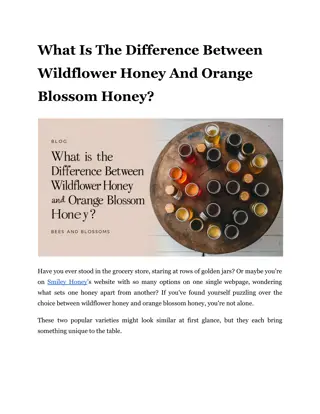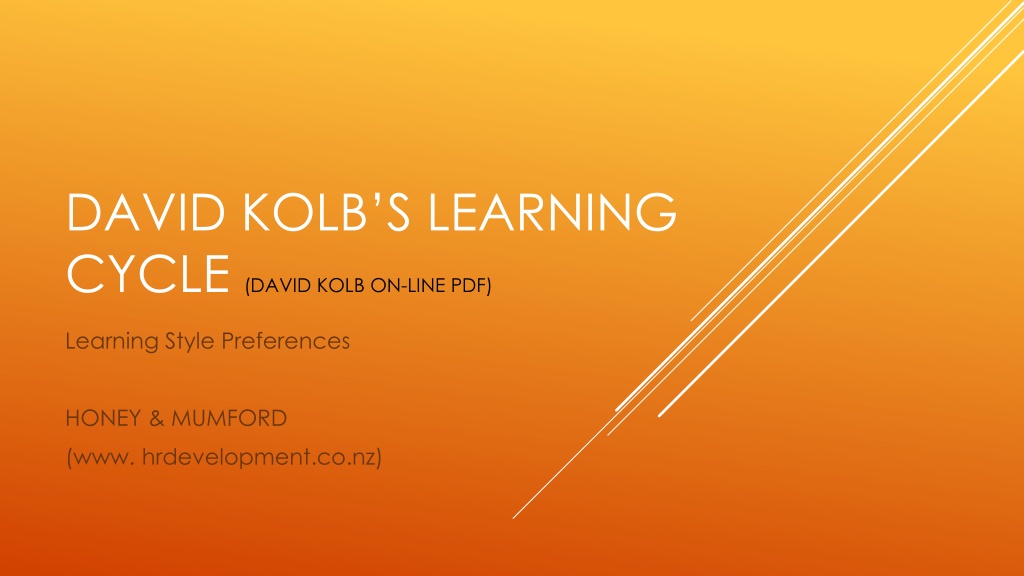
Understanding Kolb's Learning Cycle and Learning Styles
Explore David Kolb's Learning Cycle, learning style preferences according to Honey & Mumford, and how to apply the cycle in real life. Discover the different learning styles - Activist, Reflector, Theorist, and Pragmatist - and their characteristics based on Kolb's theory.
Download Presentation

Please find below an Image/Link to download the presentation.
The content on the website is provided AS IS for your information and personal use only. It may not be sold, licensed, or shared on other websites without obtaining consent from the author. Download presentation by click this link. If you encounter any issues during the download, it is possible that the publisher has removed the file from their server.
E N D
Presentation Transcript
DAVID KOLBS LEARNING CYCLE (DAVID KOLB ON-LINE PDF) Learning Style Preferences HONEY & MUMFORD (www. hrdevelopment.co.nz)
KOLBS THEORY IS BASED ON OPPOSITES BASED ON MYERS BRIGGS TYPOLOGY.
ACTIVIST REFLECTOR PRAGMATIST THEORIST PRAGMATIST LEARNING STYLE PREFERENCES HONEY &MUMFORD
Diverging/Reflector (CE/RO) Assimilating/ Theorist (AC/RO) Converging/ Pragmatist (AC/AE) Accommodating/Activist (CE/AE) LEARNING STYLES
'Having an Experience' (stage 1), and Activists (style 1): 'here and now', gregarious, seek challenge and immediate experience, open-minded, bored with implementation. ACTIVISTS
'Reviewing the Experience' (stage 2) and Reflectors (style 2): 'stand back', gather data, ponder and analyse, delay reaching conclusions, listen before speaking, thoughtful. REFLECTORS
'Concluding from the Experience' (stage 3) and Theorists (style 3): think things through in logical steps, assimilate disparate facts into coherent theories, rationally objective, reject subjectivity and flippancy. THEORISTS
'Planning the next steps' (stage 4) and Pragmatists (style 4): seek and try out new ideas, practical, down-to-earth, enjoy problem solving and decision-making quickly, bored with long discussions. PRAGMATISTS









